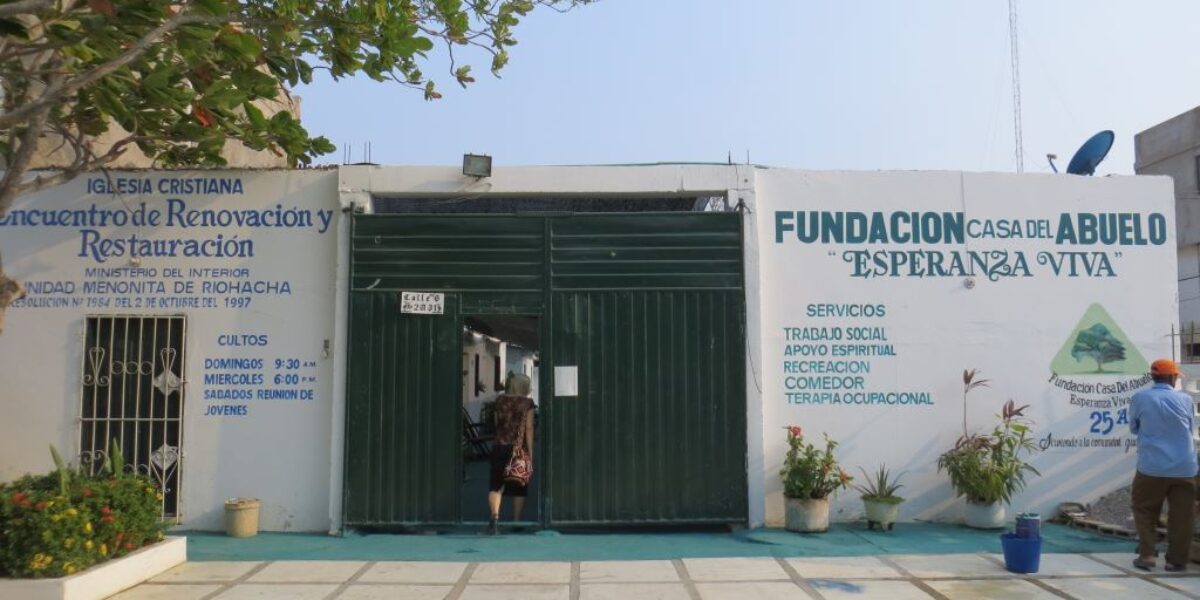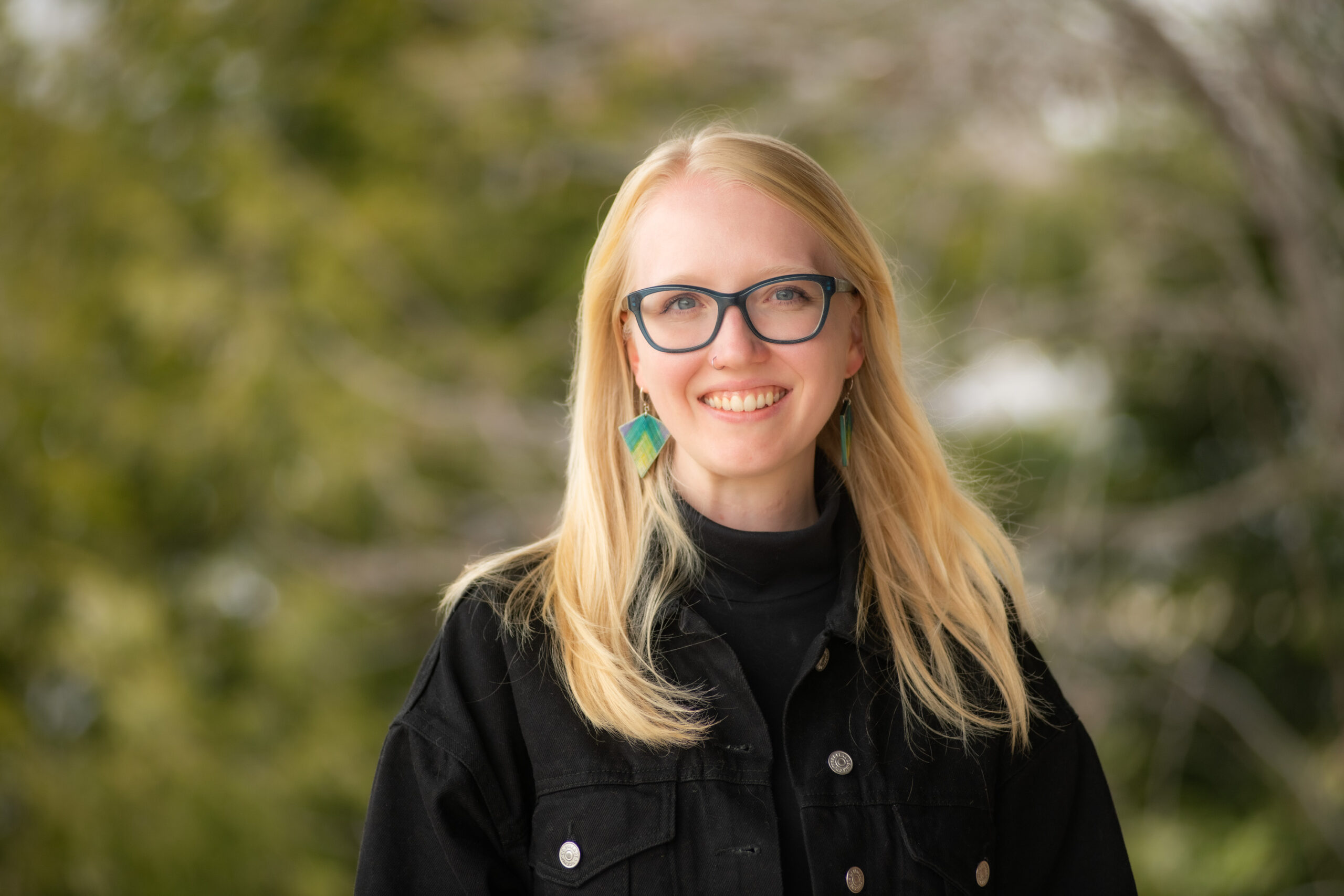“There are many problems here in La Guajira,” said Maria del Rosario Peña de Melo, a social leader and pastor of a Mennonite church in Riohacha, as she looked around the entranceway of the
Casa del Abuelo (House of the Grandparent). She sat at a table with four chairs around it and paused before continuing, “Hunger — people are very hungry — insecurity, unemployment and, of course, there are more.”
Thirty years ago, de Melo moved from Bogotá to La Guajira, one of the poorest departments in Colombia with a large population of Indigenous Wayuu and Afro-Colombians and started the social ministry
Casa del Abuelo. Today, it is a bustling community, well-known around Riohacha and often used as a point of reference when giving directions to locals. People who pass by the gate on their way to the market or to work wave to the elderly seated outdoors on the patio, greeting and wishing them a good day.
Her concern for the realities in La Guajira arose out of the lack of healthcare opportunities for the older population in Riohacha — no one wanted to take care of them in their old age and their sickness. How would they have a dignified end-of-life experience if they were simply set aside and forgotten in their time of need? This is precisely what stirred in de Melo’s heart as she began to dream of a different way of life for these abuelos by starting a ministry to house 10-15 of them and provide them with three meals a day, medical attention, and community support. Most of the services are also offered to other elderly people in the community.

Residents and community members share meals and enjoy activities in addition to receiving fellowship and love at
Casa del Abuelo. Photo by Maria del Rosario Peña de Melo.
Together with Erlinda Agudelo Layeray, Diana Sanchez, and a handful of others, each day, breakfast, lunch, and dinner are made for those taking shelter in
Casa del Abuelo. As the social realities change and the face of the Colombian armed conflict continues to be a constant and pressing reality, the social projects of
Casa del Abuelo have changed with it, always staying true to the initial mission and vision: Holistic support for elderly people without resources.
In the past couple of years, the increase in Venezuelan migrants entering Colombia has become a key factor in understanding social realities in Colombia in general, specifically in La Guajira. According to the United Nations Office for the Coordination of Humanitarian Affairs (OCHA), the department of La Guajira has one of the largest Venezuelan population in Colombia. In other words, about 50,000 Venezuelans live in the municipality of Riohacha.
The realities of migration and poverty exacerbate the problems in the region such as the presence of armed groups like the
Ejercito de Liberacion Nacional guerrilla group (ELN) and the neo paramilitary group known as the
Autodefensas Gaitanistas de Colombia (AGC, or Clan del Golfo) that are vying for territorial control, leaving many people displaced and with limited opportunities.
In August 2023, the
Defensoría del Pueblo published an
“Early Alerts” report saying that the department of La Guajira was experiencing a humanitarian crisis due to the presence of armed groups and the potential for massive displacements related to territorial disputes.
According to the most recent report regarding the humanitarian situation published by OCHA,
“234 people (75 families) were displaced from the villages of Matitas (45 families, 128 people) and Tigreras (30 families, 106 people) to the urban area of Riohacha.”
While many experiencing displacement in La Guajira are Indigenous peoples, migrants are also at risk and have difficulty finding and retaining employment due to compounding factors.
The Colombian government also announced a national crisis and state of emergency in La Guajira due to current economic, social, and climate realities in an attempt to provide rapid, context-specific aid. It has only been met with pushback. The
Corte Constitucional (Constitutional Court) “has overturned nine decrees, in addition to the declaration itself, because, due to their nature and objectives, they should be processed by the Congress of the Republic.” Columbia President Gustavo Petro has received countless blocks on not only his declaration of a state of emergency but also his subsequent ideas for how to respond to the crisis, which include adopting measures to increase access to water, rural development, and agricultural projects. All these proposals were blocked, making it impossible to get state aid to this department.
Amid the migration crisis, territorial disputes, and decreasing economic opportunities, de Melo and
Casa del Abuelo continue to imagine and live into another reality: one where there is enough food, an abundance of love and care, and direct accompaniment for those who are suffering.
That is why, when over 700 families of both Wayuu and Venezuelan backgrounds were displaced and invaded an empty plot of land in Riohacha, de Melo and her team jumped into action. Malnutrition and poor living conditions were affecting hundreds of children and lactating mothers. Thus de Melo and her team started providing daily breakfast and lunch to around 50 children and mothers.
"What we need is a church with more humanity," de Melo said. "I don’t think it’s about spirituality, although, without a doubt, spirituality leads us closer to the heart of God. What we need is a church more committed to seeing humanity in all its facets and living into a reality based on abundance, mutual care, nonviolence and love of neighbor."








